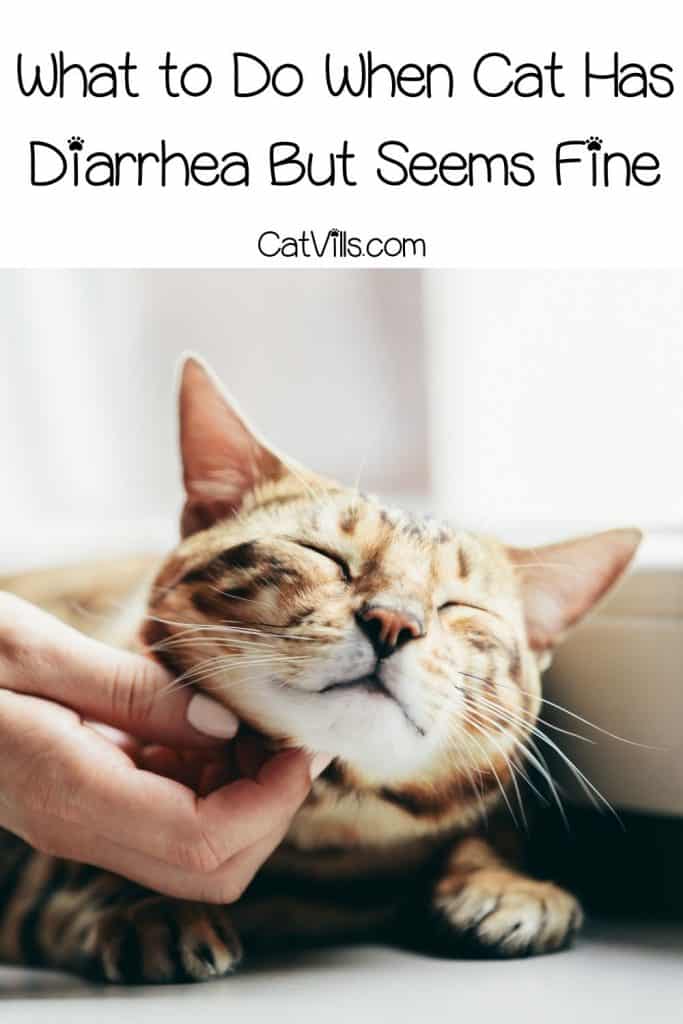Last Updated: 1 year ago
Should you be worried if your cat has diarrhea or vomiting but seems fine otherwise?
If a cat has the runs but no other symptoms, we do not necessarily need to be alarmed.
For most, their diarrhea will be mild and transient, and they will be back to normal within a few days.
However, there are certain ‘red flags’ we need to be on the lookout for, so read on to learn more.
What Causes Diarrhea in Cats?
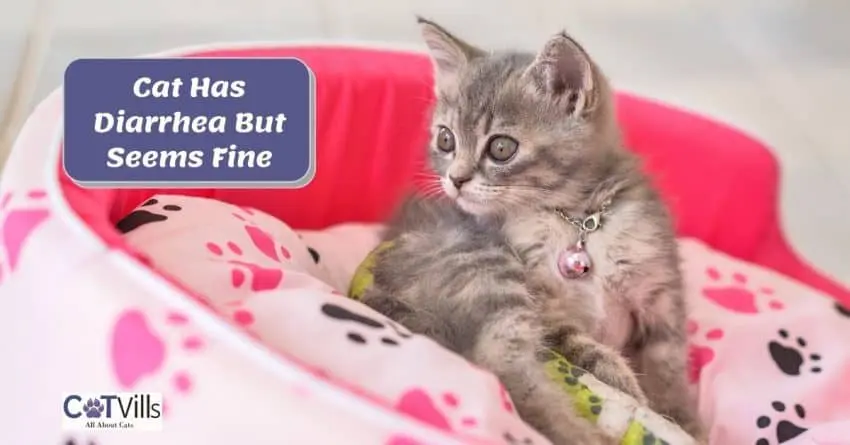
There are a wide range of causes of diarrhea. Oftentimes, we never discover why our cat has diarrhea, and their stool will return to normal quickly.
Parasites
This includes worms such as roundworms and protozoal infections such as giardia.
An inappropriate diet
Have you shared your curry or roast dinner with Felix? Rich or fatty foods are likely to cause a stomach upset.
An abrupt diet change
This especially applies to kittens. Changing a diet too quickly (e.g., from dry food to wet food) is a recipe for disaster.
Stress
No, we don’t mean a looming deadline or a bill that can’t be paid.
Stress in cats can be caused by car travel, a recent vet visit, loud noises such as fireworks, or construction work within the home.
Some cats are more sensitive than others.
A bacterial or viral infection
There are many infections that cause diarrhea, including Coronavirus, Feline Infectious Peritonitis, FIV, FeLV, Salmonella, and E. coli.
Inflammatory bowel disease
This syndrome causes chronic diarrhea and not many other signs in the initial stages. Most cats are managed with medication and a hydrolyzed diet.
A food intolerance
Signs of food intolerance can range from mild to severe. Cats can react to any food, including dairy, grains, chicken, and peas.
A hypoallergenic diet can be trialed for 8 weeks in these cases.
A more serious medical issue
Cancer, hormone imbalances, and organ failure can all be present with diarrhea.
However, cats will tend to have other obvious symptoms such as weight loss, a change in appetite, and a bloated abdomen.
Symptoms of Diarrhea in Cats, and When Should I Worry?
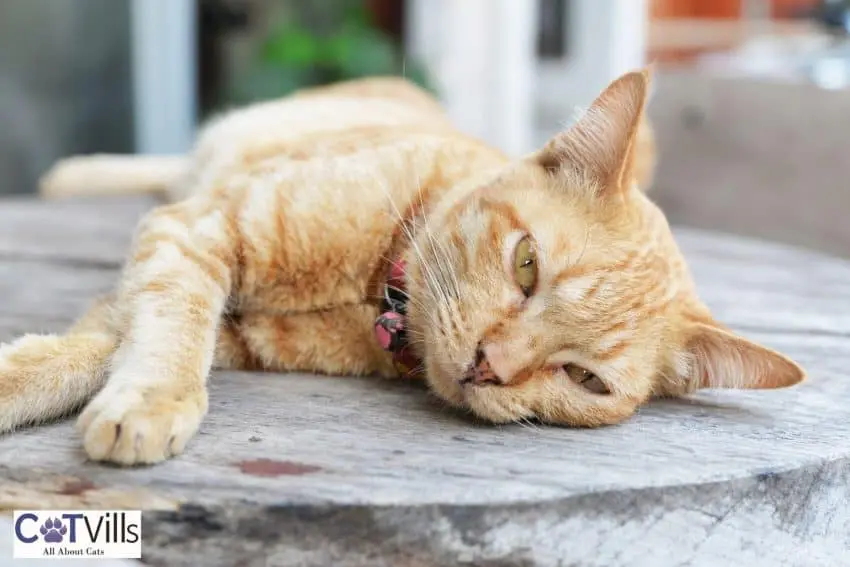
It can be jarring to find that your cat’s stool looks different from how it normally would.
It will be wet and sloppy, or even watery and bubbly. The color can vary from orange to brown, and it can smell pungent.
Those with diarrhea tend to pass stool three times a day or more. In some cases, there will be mucus (a slime-like substance) or even blood visible within the poo.
Cats who have diarrhea will be thirstier and hungrier than usual. This is because they are trying to make up for the fluid and nutrients being lost through their gut.
Your kitty can have a mild stomach ache and gas.
You may notice they are less eager to play and want to sleep more than usual. As the diarrhea improves, these symptoms should quickly disappear.
If your cat is really not themselves, or if diarrhea does not improve within a day or two, it is time to act.
While less common, diarrhea can be a sign that your cat is sick and there’s something more serious.
You know your cat better than anyone. If they are not happy, have your vet check them over.
My Cat has Diarrhea but no other Symptoms
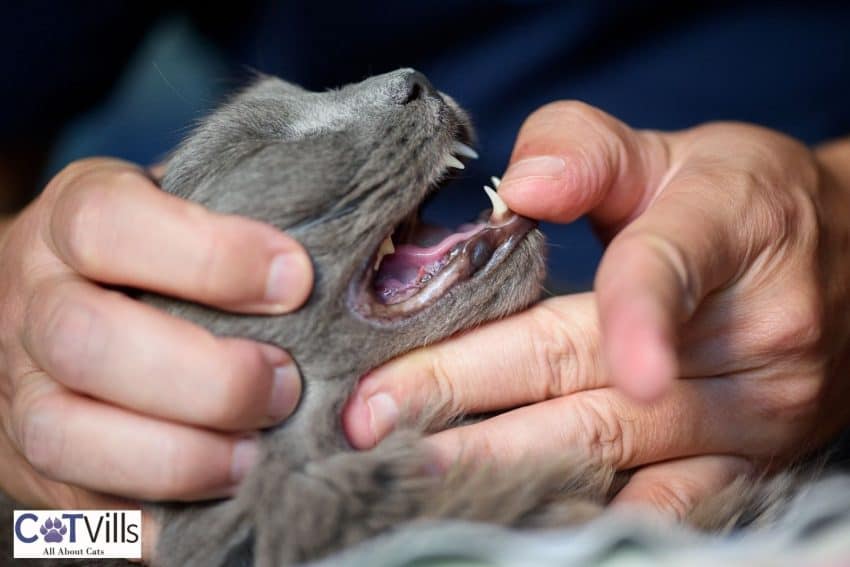
First of all, try to assess your cat. Do they seem active and happy? Are they grooming, eating, and exercising as normal?
If so, this is a good sign. If they tolerate it, check their gums to ensure they are pink and wet. Pale gums can be a sign of anemia. Dry or ‘tacky’ gums indicate dehydration.
Keep a close eye on them and their litter tray habits. Hopefully, their stool will be back to normal very soon.
Read on below to discover what action you should take.
Remember, when a kitten has diarrhea but acts normally, this is more of a concern. Kittens are less able to cope with the fluid that is lost in the runny stool.
They have low body fat reserves, so they can become quickly dehydrated and develop low blood sugar.
What If Your Cat has Diarrhea and Vomiting but is Acting Normally?
If your cat or kitten has diarrhea and vomiting, this does need to be taken more seriously.
This combination of signs likely indicates a more serious issue and can quickly lead to dehydration, especially if your kitty is not wanting to eat or drink.
Sometimes, a cat will seem okay during the first day or two of symptoms but then take a turn for the worse. Cats can be experts at hiding signs of feeling unwell.
In this scenario, it is worth giving your vet a call. This is because your vet may want to see your cat.
They will likely suggest a visit if your cat is young, old, or unwell.
Similarly, if your cat is known to suffer from medical issues such as pancreatitis or triaditis, it should be examined promptly.
How Can I Help Stop My Cat’s Diarrhea?
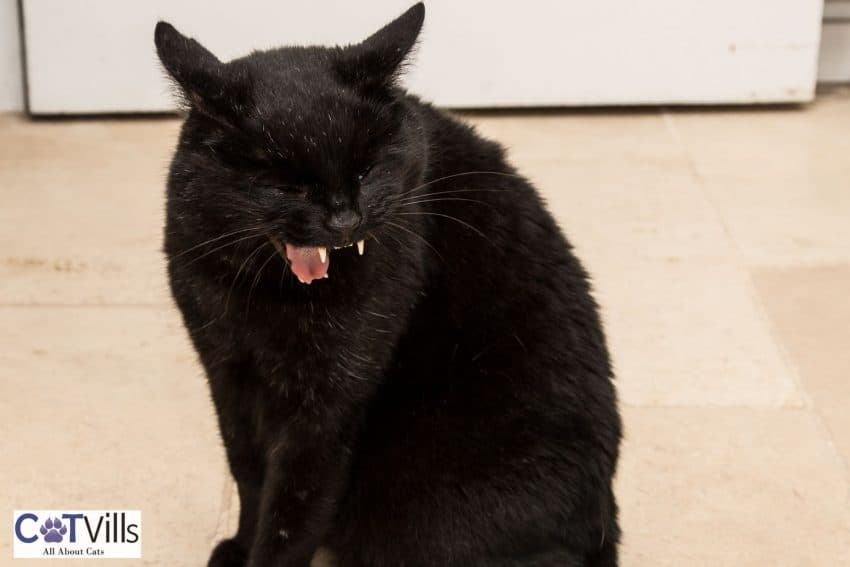
Great question! For any pet owner, the first thing they will want to do is get their cat back in tip-top shape.
There are certain things we can do to speed up the resolution of diarrhea. Once that poo is solid again, we can all breathe a sigh of relief.
Covering the Basics
Whether your cat goes outdoors or not, it should receive some degree of parasite prevention.
As a general rule, indoor-only cats should be de-wormed annually.
Use broad-acting parasite prevention such as fenbendazole (Panacur) to eliminate any nasties. Cats can pick up parasites from other cats, fleas, meat, and soil.
Start your poor kitty on a course of probiotics. These ‘good’ bacteria will help establish a healthy gut microbiome.
We know that probiotics can help prevent and speed up the recovery of diarrhea. Read here for more information: Probiotics are used in cats and dogs.
Check your home and garden for any possible toxins. Have you left the garbage can open? Is there an old bowl of food left in the garage?
Have your neighbor’s poisonous plants started growing on your patio? It’s time to act like Sherlock Holmes and investigate any potential diarrhea triggers.
Food and Water
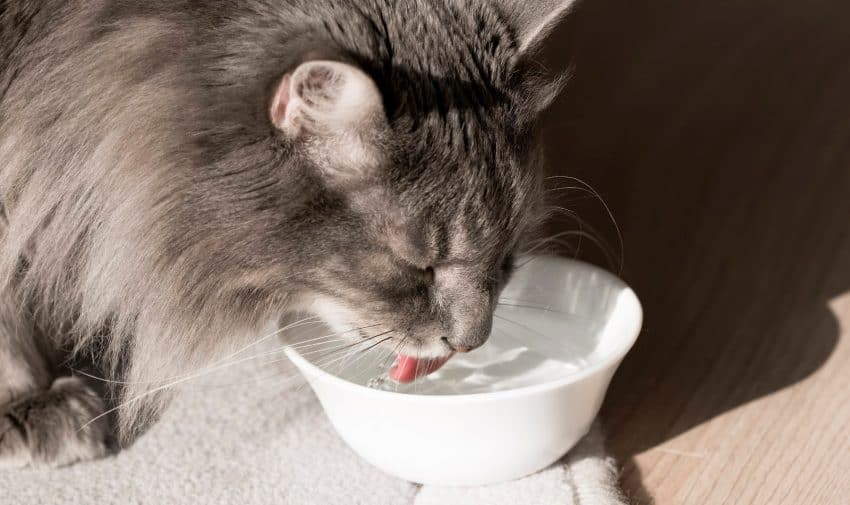
Whether or not you should starve your cat will depend on a few things.
Those kitties who are young, geriatric, or who have underlying medical issues should probably not be starved. For example, a cat with diabetes should continue to eat.
For an adult, healthy cat, it can be useful to rest its gut for 12 hours. Once we start to feed them, keep the diet bland and simple.
We can offer highly digestible foods such as chicken, turkey, white fish, and scrambled eggs.
They should be fed little and often. Alternatively, we can feed some sensitive cat food, such as Hills I/D. As the stool improves, gradually reintroduce your cat’s regular chow.
Fresh water should be freely available at all times. It is important to encourage water consumption.
This is to replace the fluid lost in the sloppy poo. We can add water to meals and use a cat water fountain.
Some cats will happily eat an ice cube or two. If your cat is not a water fan, you can syringe water onto the tip of their tongue for them to lap off every so often. You could also provide a cat-safe broth or soup.
When should I see a vet?
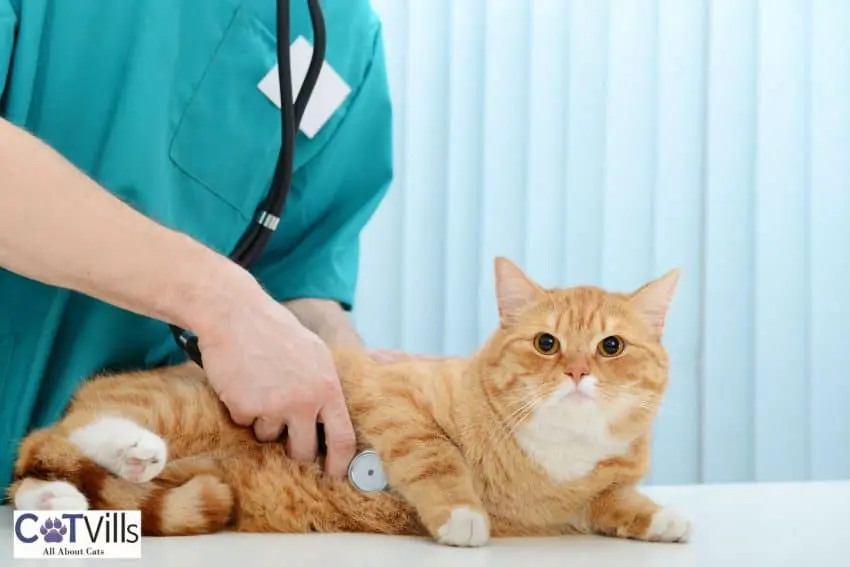
It is important that your cat see a vet if they become ill. You should be on the lookout for signs such as lethargy, a reduced appetite, or a bloated abdomen.
Similarly, if diarrhea becomes profuse or bloody, a vet check is best.
Most mild cases of diarrhea resolve within 24–48 hours. If your cat has ongoing diarrhea, this does need to be looked into.
The Bottom Line
Most of the time, diarrhea will go away on its own. However, it depends on what is causing diarrhea. Sometimes, a cat will need veterinary care to help them get over diarrhea.
You should keep meals simple. Stick to plain food, such as boiled white chicken or fish, with no sauce or oil. Little and often is best.
If you have any comments or questions, please use the comments section below or our contact page.
References:
